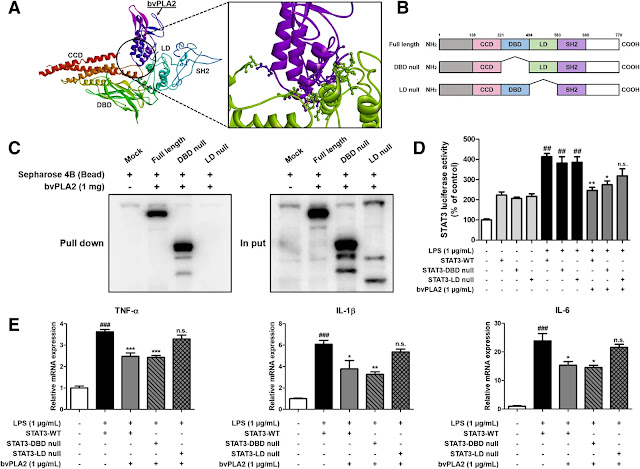Wednesday, October 09, 2019
Bee Venom Component May Help Restore Memory in Alzheimer’s Disease (Aging, Ageing, Dementia, Brain, Mental, Cognitive)
Bee venom phospholipase A2 ameliorates amyloidogenesis and neuroinflammation through inhibition of signal transducer and activator of transcription-3 pathway in Tg2576 mice
Transl Neurodegener. 2019 Oct 2;8:26
BUY Concentrated Propolis in Veggie Capsules
BUY 3-Piece (2 Fountain Pens, Rollerball) Gift Set
Background:
Neuroinflammation and accumulation of β-amyloid (Aβ) play a significant role in the onset and progression of Alzheimer's disease (AD). Our previous study demonstrated that signal transducer and activator of transcription-3 (STAT3) plays a major role in neuroinflammation and amyloidogenesis.
Methods:
In the present study, we investigated the inhibitory effect of bee venom phospholipase A2 (bvPLA2) on memory deficiency in Tg2576 mice, which demonstrate genetic characteristics of AD and the mechanism of its action at the cellular and animal level. For in vivo study, we examined the effect of bvPLA2 on improving memory by conducting several behavioral tests with the administration of bvPLA2 (1 mg/kg) to Tg2576 mice. For in vitro study, we examined the effect of bvPLA2 on amyloidogenesis and neuroinflammation by treating bvPLA2 on LPS-activated BV2 cells.
Results:
We found that bvPLA2 alleviated memory impairment in Tg2576 mice, as demonstrated in the behavioral tests assessing memory. In the bvPLA2-treated group, Aβ, amyloid precursor protein (APP), and β-secretase 1 (BACE1) levels and β-secretase activity were significantly decreased. Expression of pro-inflammatory cytokines and inflammation-related proteins decreased in the brain of bvPLA2-treated group, whereas anti-inflammatory cytokines increased. In addition, bvPLA2 reduced STAT3 phosphorylation in the brains of the bvPLA2-treated group. At the cellular level, bvPLA2 inhibits production of nitric oxide, pro-inflammatory cytokines, and inflammation-related proteins including p-STAT3. Additionally, bvPLA2 inhibits the production of Aβ in cultured BV-2 cells. Results from the docking experiment, pull-down assay, and the luciferase assay show that bvPLA2 directly binds STAT3 and, thus, regulates gene expression levels. Moreover, when the STAT3 inhibitor and bvPLA2 were administered together, the anti-amyloidogenic and anti-inflammatory effects were further enhanced than when they were administered alone.
Conclusion:
These results suggest that bvPLA2 could restore memory by inhibiting the accumulation of Aβ and inflammatory responses via blockage of STAT3 activity.
Subscribe to:
Post Comments (Atom)

No comments:
Post a Comment